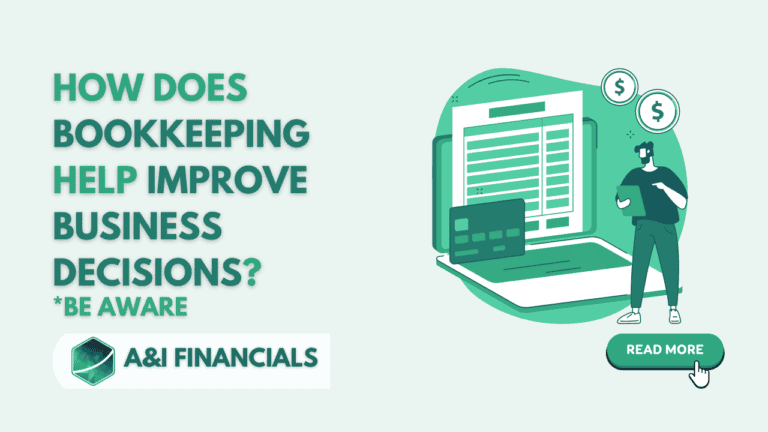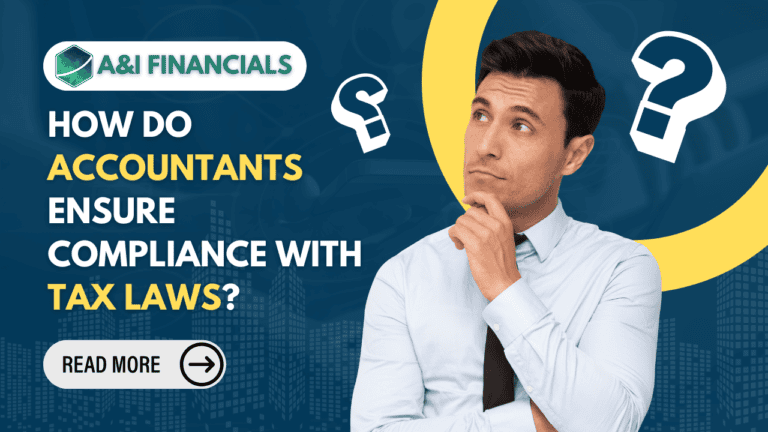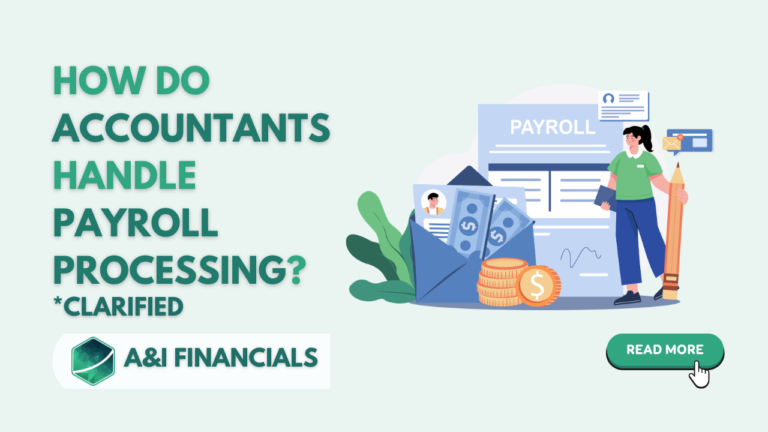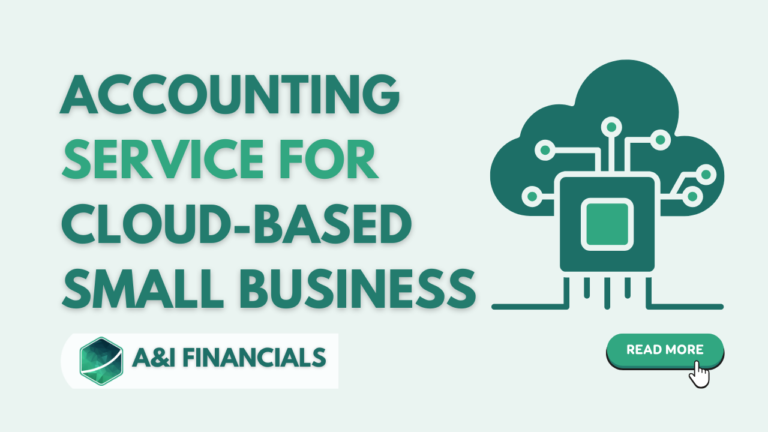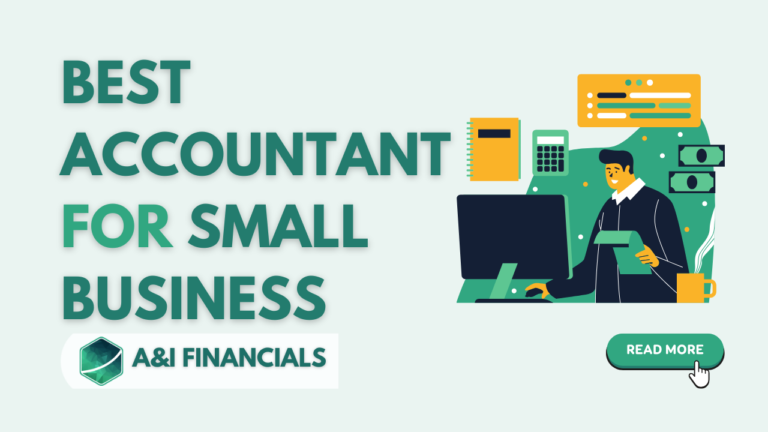How to Find a Good Tax Accountant for Your Tax Return?
Navigating the complex web of tax regulations can be daunting, but finding a good tax accountant for your tax return makes the journey smoother. You might think, “How hard can it be?” Well, the right tax professional can save you from headaches, ensuring your returns are accurate and beneficial. Let’s delve into how to find that perfect tax accountant and why it’s so crucial.
Understanding Your Tax Needs
First things first, you need to understand your own tax situation. Are you a freelancer, a small business owner, or an individual with a straightforward income? Different scenarios require different types of tax professionals. Here are some examples:
- Freelancer:
- Example: A graphic designer working on various projects.
- Tax Challenges: Quarterly estimated taxes, tracking deductible expenses, and managing 1099 forms.
- Small Business Owner:
- Example: A local bakery owner with a few employees.
- Tax Challenges: Payroll taxes, business expense deductions, and inventory management.
- Individual with Straightforward Income:
- Example: An employee with a single source of income and no additional income streams.
- Tax Challenges: Standard deductions, filing W-2 forms, and possibly claiming the Earned Income Tax Credit.
- Investor:
- Example: Someone with multiple investment accounts, including stocks and real estate.
- Tax Challenges: Capital gains taxes, tracking investment income, and understanding tax implications of different investment types.
- Retiree:
- Example: A retiree drawing from Social Security and retirement accounts.
- Tax Challenges: Managing withdrawals from retirement accounts, understanding tax on Social Security benefits, and possible medical expense deductions.
By identifying your specific tax situation, you can find a tax professional who understands your unique needs and can offer the best advice.
Types of Tax Professionals
- Certified Public Accountant (CPA): These are highly qualified professionals who can handle complex tax issues and offer financial advice.
- Enrolled Agent (EA): These tax experts are federally licensed and specialize in various tax matters.
- Tax Attorney: Best for handling legal disputes and complex tax issues.
- Chartered Accountant (CA): Similar to CPAs but often more familiar with international tax laws.
Credentials and Qualifications
When seeking a tax accountant, credentials are paramount. Look for professionals with the appropriate qualifications:
- Certified Public Accountant (CPA)
- Enrolled Agent (EA)
- Tax Attorney
Each of these has undergone rigorous training and has specific expertise. For instance, EAs are experts in tax-related issues and can represent you before the IRS.
Checking Professional Organizations
Reputable tax professionals are often members of professional organizations. These memberships can be a stamp of credibility. Here’s why:
- Continuing Education:
- Members must complete regular training. This keeps them updated on the latest tax laws and regulations.
- Ethical Standards:
- Organizations enforce strict ethical guidelines. Members must adhere to these standards to maintain their membership.
- Credibility:
- Being part of a professional group adds credibility. It shows that the tax professional is committed to their field.
- Networking and Resources:
- Members have access to valuable resources and networking opportunities. This helps them stay informed and connected.
- Quality Assurance:
- Professional organizations often have quality assurance programs. This ensures members provide high-quality services.
By choosing a tax professional who is a member of a reputable organization, you can be confident in their expertise and commitment to ethical practices.
- American Institute of Certified Public Accountants (AICPA)
- National Association of Enrolled Agents (NAEA)
- National Society of Accountants (NSA)
- Better Business Bureau (BBB)
These organizations often have directories that can help you find qualified professionals.
IRS Directory of Federal Tax Return Preparers
The IRS Directory of Federal Tax Return Preparers is a valuable resource. Here’s how to use it:
- Accessing the Directory:
- Visit the IRS website and search for the “Directory of Federal Tax Return Preparers.”
- Use this link to go directly to the directory.
- Searching for a Preparer:
- Enter your ZIP code to find local tax preparers.
- Filter results by credentials, such as CPA, EA, or attorney.
- Information Available:
- The directory lists preparers’ names, addresses, and contact details.
- It shows their credentials and qualifications.
- Interpreting Qualifications:
- Look for designations like CPA (Certified Public Accountant) or EA (Enrolled Agent).
- Check if they have a PTIN (Preparer Tax Identification Number).
- Why It’s Useful:
- Ensures your tax accountant is recognized and reliable.
- Helps you find preparers with specific expertise.
Using the IRS Directory helps you find qualified and credible tax professionals with ease.
Conducting a Background Check
It’s essential to do your due diligence. Check for any disciplinary actions or red flags against the tax professional. Here’s how:
- State Boards of Accountancy:
- Contact your state’s board of accountancy.
- Verify the accountant’s license and check for any disciplinary actions.
- Better Business Bureau (BBB):
- Visit the BBB website.
- Look up the tax professional’s name or business to see customer reviews and complaints.
- Professional Organizations:
- Check websites of organizations like AICPA or NAEA.
- Confirm the professional’s membership and standing.
- Online Reviews:
- Read reviews on platforms like Google and Yelp.
- Pay attention to patterns of complaints or praise.
- PTIN Verification:
- Ensure they have a valid Preparer Tax Identification Number (PTIN).
- This can be verified through the IRS website.
By following these steps, you can ensure the tax professional you choose is credible and reliable.
Understanding Fees and Payment Structures
Different tax accountants charge differently. Some may have a flat fee, while others charge based on the complexity of your tax situation. Be wary of those who charge fees on a percentage of your refund as it might lead to unethical practices.
The Preparer Tax Identification Number (PTIN)
Ensure your tax accountant has a valid Preparer Tax Identification Number (PTIN). This is a must for anyone preparing federal tax returns for compensation. It’s a sign that they are recognized by the IRS.
Specialized Knowledge and Industry-Specific Expertise
If you have a unique tax situation, such as owning a small business or dealing with real estate taxes, finding an accountant with industry-specific knowledge is crucial. They will be familiar with relevant deductions and credits.
Common Tax Deductions and Credits
- Earned Income Tax Credit (EITC)
- Child Tax Credit
- Education Credits (American Opportunity Credit, Lifetime Learning Credit)
- Home Office Deduction
- Retirement Savings Contributions Credit
- Medical and Dental Expenses Deduction
- Charitable Contributions Deduction
A knowledgeable accountant can help you navigate these and maximize your savings.
Use of Tax Preparation Software
Some accountants use tax preparation software like TurboTax, H&R Block, TaxAct, or Liberty Tax. Here’s what you need to know:
Advantages:
- Efficiency: Speeds up the tax preparation process.
- Accuracy: Reduces human error with built-in checks.
- Up-to-date: Software is updated regularly to reflect current tax laws.
Drawbacks:
- Limitations: May not handle complex tax situations well.
- User Dependence: Effectiveness depends on the user’s knowledge and expertise.
- Cost: Some software solutions can be expensive.
Accountant’s Expertise:
- Experience: Accountants know how to use these tools to maximize benefits.
- Customization: They can tailor the software to fit unique tax situations.
- Problem-solving: They can troubleshoot issues that software alone might not resolve.
Key Features Accountants Look For:
- Integration: Compatibility with other financial software.
- Comprehensive Coverage: Ability to handle various tax scenarios.
- Support: Access to customer service and expert advice.
- Data Security: Ensures client information is protected.
An accountant’s expertise enhances the use of tax software by ensuring accurate and efficient tax preparation tailored to your needs.
Checking Reviews and Testimonials
Word of mouth is powerful. Check reviews on platforms like Google, Yelp, and the Better Business Bureau (BBB). Testimonials from previous clients can provide insights into the accountant’s reliability and professionalism.
Meeting and Interviewing Potential Accountants
Before making a decision, meet with a few candidates. Ask them about their experience, the types of clients they handle, and their approach to tax preparation.
Key Questions to Ask
- What are your credentials?
- Do you have experience with my specific tax situation?
- How do you handle data security and confidentiality?
- Can you represent me in case of an IRS audit?
- What are your fees and payment terms?
Evaluating Data Security and Confidentiality
In today’s digital age, data security is crucial. Ensure your tax accountant uses data encryption, secure data handling practices, and confidentiality agreements to protect your sensitive information.
The Importance of a Preparer Signs
Make sure your tax accountant signs your tax return. This is not just a formality but a legal requirement that holds them accountable for their work.
Red Flags to Watch Out For
Be cautious of accountants who guarantee large refunds without understanding your financial situation, ask you to sign blank tax forms, or don’t have a valid PTIN. These are red flags that could lead to trouble.
Practical Steps to Finding a Good Tax Accountant
Step 1: Identify Your Needs
Understand your specific tax situation and what type of professional you need.
Step 2: Research and Compile a List
Use resources like the IRS Directory and professional organizations to find potential candidates.
Step 3: Check Credentials and Background
Verify their credentials, check for disciplinary actions, and ensure they have a valid PTIN.
Step 4: Evaluate Fees
Understand their fee structure and ensure it aligns with your budget.
Step 5: Interview Candidates
Meet with a few candidates, ask key questions, and assess their expertise and compatibility with your needs.
Step 6: Check Reviews
Look at reviews and testimonials to gauge their reputation and reliability.
Step 7: Ensure Data Security
Confirm that they have robust data security practices in place.
Step 8: Make Your Decision
Choose the accountant who best meets your needs and gives you confidence in their ability to handle your tax return.
Finding the Perfect Tax Accountant for Your Return with A&I Financials
Finding a good tax accountant for your tax return is crucial to ensure accuracy and maximize your potential deductions. At A&I Financials, we pride ourselves on offering comprehensive accounting services tailored to meet your unique needs. Our team of experienced professionals is dedicated to staying up-to-date with the latest tax laws and regulations, providing you with expert advice and personalized solutions. Whether you need help with individual tax returns or complex business filings, our proactive approach ensures that you are always compliant and well-prepared. Trust A&I Financials to handle your tax accounting needs with precision and care, giving you peace of mind and allowing you to focus on what matters most.
Conclusion
Finding a good tax accountant for your tax return can seem like searching for a needle in a haystack, but with the right approach, it becomes manageable. Remember to check credentials, understand fees, and ensure they have the appropriate experience for your specific needs. A good tax accountant not only prepares your taxes accurately but also provides valuable advice to optimize your financial situation. So take your time, do your research, and find the perfect partner to navigate the complex world of taxes with you.
With these steps, you’re well on your way to finding a trustworthy tax accountant who can help you navigate the tax season smoothly and efficiently. Happy tax filing!
FAQs
When conducting a background check on a tax accountant, verify their credentials, check for any disciplinary actions, read online reviews, and ensure they have a valid Preparer Tax Identification Number (PTIN). You can also consult state boards of accountancy and professional organizations like AICPA or NAEA.
A tax accountant can help maximize your deductions by identifying all eligible deductions and credits, such as the Earned Income Tax Credit, Child Tax Credit, and business expense deductions. Their expertise ensures that you don’t miss out on any potential savings.
Hiring a CPA offers several benefits, including their extensive training and ability to handle complex tax issues. CPAs can provide financial advice, represent you before the IRS, and ensure compliance with all tax regulations, making them a valuable asset for both individuals and businesses.
It is important for a tax accountant to sign your tax return because it holds them accountable for the accuracy of the information provided. A signed return also complies with legal requirements, providing you with additional security and peace of mind.
At A&I Financials, we stay updated with continuous education and professional development. Our team attends seminars, webinars, and follows tax publications to provide accurate and up-to-date advice, ensuring compliance and maximizing client benefits.

